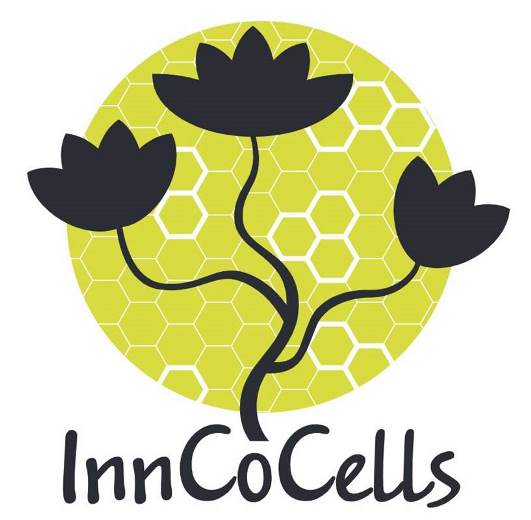Four projects have been funded under H2020 topic FNR-11-2020:
“Prospecting aquatic and terrestrial natural biological resources for biologically active compounds”
We have now formed the AIMS cluster to explore common challenges and activities, adding value to each project and to the cluster as a whole.
Image credit: lemon balm by Color Line (CC BY 2.0)
AIMS Cluster Projects

LATEST NEWS:
Three of the AIMS cluster projects (InnCoCells, MARBLES and SECRETed) held a special session during the International Congress on Natural Products Research 2024. Session IV, which ran from 13.30 to 15.30 on 15/7/2024, was entitled Prospecting aquatic and terrestrial natural biological resources for biologically active compounds and was chaired by Prof. Nikolaos Fokialakis, National and Kapodistrian University, Greece, Vice President of the Society for Medicinal Plant and Natural Product Research (GA). Importantly, the GA is part of the InnCoCells Stakeholder Group that helps to guide the selection of ingredient candidates developed by the project.
The full Session IV program is shown in the flyer below.
During the session, we recorded a special edition of the InnCoCells podcast with Dr Manuel Salvador (SECRETed) and Dr Fernando Reyes (MARBLES), which is available on our podcast page.
AIMS is a cluster of four projects funded under the same EU Horizon 2020 topic (FNR-11-2020)
“Prospecting aquatic and terrestrial natural biological resources for biologically active compounds”
You can learn more about the AIMS projects by clicking on the logos below to access the four project websites. You can also watch the introductory videos from the first AIMS cluster online workshop held on 25th May 2022.

Here you can read a press release about the launch of the AIMS cluster published by the SECRETed project.

Here you can read the new AIMS cluster brochure, which describes the four projects and the role of AIMS.
The mission of Algae4IBD is to develop commercial products for inflammatory bowel disease (IBD) prevention and treatment using aquatic natural biological resources. With the emerging developments in natural product, notable success has been achieved in discovering natural products and their synthetic structural analogues with anti-inflammatory activity. However, global biodiversity remains a largely unexploited resource for natural bioactive molecules with an enormous potential for developing commercial products with public health benefits. Micro and macroalgae, found in marine and freshwater, have been identified as promising sources of bioactive compounds including small molecules and secondary metabolites with a wide range of bioactivities as an antioxidant, anti-inflammatory and cancer preventive. Consumption of algae could, therefore, provide defence against chronic inflammatory diseases such as IBD, that until date have no effective cure. This project offers nature to bedside approach, using an entire development along the value chain for a new biodiscovery therapeutic approach by developing and examining algae-based compounds for IBD patients while guaranteeing algae’s biodiversity preservation. We propose innovative solutions for increasing the use of algae-based ingredients and to ensure the science-based improvement of nutritional quality and its effect on public health. The researchers, companies and hospitals involved in the different stages of the project will use the biodiversity of algae, both micro and macro, as a wide source for bioactive compounds using state-of-the-art cultivation and extraction technologies for obtaining sufficient amounts of the bio-active molecules together with novel processing protocols. It will result in novel algal-based, high-quality bioactive compounds at GMP grade and lower costs for dual purposes – IBD prevention and treatment in relevance to the food as well as the pharmaceutical industries
The InnCoCells project will develop innovative and sustainable plant-based production processes for the commercial exploitation of scientifically validated cosmetic ingredients based on underutilised plant resources. We will optimise these resources for profitable and sustainable production using cell cultures, aeroponics and greenhouse/field cultivation. We will apply systematic approaches including metabolic engineering tools to optimise growth conditions and the yields of valuable bioactive, small-molecule compounds and ingredients. The optimised processes will be demonstrated by pilot-scale production and subsequent product extraction/purification. We will bring at least ten cosmetic ingredients to the pre-commercial stage. InnCoCells includes a cascade biorefinery concept in which by-products and biowaste are utilised for the extraction of further bioactive molecules. The processes will be characterised by techno-economic assessment and life cycle analysis to ensure economic feasibility and a reduced environmental footprint. The ingredients and extracts will be evaluated using a unique panel of innovative enzyme-based and cell-based assays to ensure safety and validate claimed activities based on robust scientific data without animal testing. We will implement a unique stakeholder engagement strategy, including the assembly of a Stakeholder Group to guide our research program based on the needs of industry, academia, farmers, policymakers and consumers. The consortium includes eight SMEs and one large company from the cosmetic sector among the 17 partners to facilitate exploitation. We will develop bespoke communications strategies for different stakeholders and for public engagement. We will also interact closely with the regulatory authorities in Europe. This industry-driven and interdisciplinary project will ultimately increase the strength of the European bioeconomy by supporting the development of innovative biobased goods and markets.
MARBLES will use a novel and systematic approach to access and exploit marine microbial biodiversity for sustainable bioprospecting to discover microbial consortia and bioactive molecules for application in aqua- and agriculture and in the clinic. MARBLES’ ecology-based bioprospecting strategy will focuses on unique host-microbe interactions in marine environments, including marine sponges, microalgae and fish, which rely on their microbiomes and microbial natural products for disease resistance. Partners’ existing microbial collections and new ones generated during MARBLES will be harnessed for the discovery of novel natural products and synthetic microbial communities. For this, MARBLES will use a systems-wide genomics approach to uncover the bioactive agents in disease-suppressive microbiomes. Also, MARBLES will explore host- and microbe-derived chemicals that elicit production of bioactive compounds, as elicitors to revitalise drug screening. The deliverables will be microbes and consortia and bioactive natural products, their derivatives and elicitors, which can be harnessed to fight infectious diseases in the agrochemical and aquaculture industries and in healthcare. Besides highly innovative, the approaches will be cost-effective and will offer advantages from both environmental and health perspectives in comparison to existing alternatives. The sustainable production of bioprotectants will increase the effectiveness of fish production – reducing the pressure on harvesting wild fish – and aid the transition of the crop agriculture sector towards bio-based and circular solutions. MARBLES will work closely together with a panel of SMEs and large companies from the EU aquaculture, crop protection biotechnology and health sectors. MARBLES fully complies with the Nagoya and Cartagena Protocols, and aims to make major contributions to the UN sustainable development goals, SDG 2, 3, 12, 13 and 14, as well as to current UN processes (BBNJ, DSI, SynBio)
SECRETed is an EU-H2020 multidisciplinary project involving multiple stakeholders and with a strong participation of SMEs to fully exploit the potential of aquatic biotechnology and produce novel industrial products for the agrochemical, pharmaceutical, cosmetic and chemistry sectors. SECRETed will develop novel hybrid molecules with tailor-made properties obtained from the combination of biosynthetic genes of amphiphilic compounds (biosurfactants and siderophores) produced by marine and extremophilic microorganisms. The project will focus on reutilizing previous sampling efforts by screening already collected microbial collections from previous European initiatives. Machine Learning algorithms (ML) will be deployed to reveal the genetic mechanisms responsible for their biosynthesis and to expand the chemical diversity of such bio-based compounds. To this end, databases inspection and new collected data will be employed to construct a unique microbial amphiphilic compound chemical space comprehending molecular structures, physicochemical characteristics, associated bioactivities and revealed genetic mechanisms responsible for their biosynthesis. To expand the chemical diversity and enhance the industrial sustainable exploitation of such bio-based compounds, Biosynthetic gene clusters (BGCs) in charge of the production of these molecules will be reverse engineered by standardizing and modularizing the genetic elements comprising such clusters. Their potential benefits will be broadened by looking for Industry-driven (agrochemical, cosmetic, nutrition and health) formulations based on the engineered combinations of the genetic elements expressed in suitable microbial hosts. New strains will then be designed, built and tested in an iterative process for the development of viable and sustainable industrial processes.




